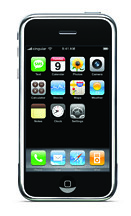
Ever since Bob Conrad, author of The Good, The Bad, and The Spin, shared the Wired story about Las Vegas-based Righthaven, we've been wondering about the future of a few "experts."
According to the article, Righthaven has filed "at least 80 federal lawsuits against website operators and individual bloggers who’ve re-posted articles" originally written by their first client. If the infringements are settled, they are worth between $1,500 and $3,000 apiece. If they go to litigation, they could be worth $150,000 or more.
Trapping plagiarists with inaccuracies.
While reposting complete articles is obvious, reframing ideas are not always so obvious, as Ike Pigott illustrated last March with his post Attribution is the Sincerest Form of Flattery. And again, comparing this story with this story. Are there similarities?
It might be more crystal clear if the screen scrapes were even more blatant. And one way to make that happen might be to borrow a page of out The Trivia Encyclopedia by Fred L. Worth. Worth lost his $300 million lawsuit even after inventors of Trivial Pursuit acknowledged that Worth's books were among their sources*, but recently a Wall Street Journal writer wasn't so lucky.
The Wall Street Journal recently reported on one of its contributors. It seems two "Agenda" columns by Bill Jamieson, executive editor of the Scotsman, sourced information without crediting the source. (Hat tip: Regret The Error). The reason it was obvious was because Jamieson had apparently scraped up errors from those sources.
*Interestingly enough, the only reason Worth lost his lawsuit is because the judge had ruled that facts cannot be copyrighted. However, while I'm not an attorney, I wonder if a better counter argument could have been that embedded errors aren't fact at all.
Avoiding the accidental pickup.
I like to give people the benefit of the doubt. So let's assume most people want to write something remotely original, but also want to use the openness of the Web to color their stories with other ideas, thoughts, and opinions. The easiest way to do that is by following some simple guidelines.
• Some facts don't have to attributed. In the States, we'd all be hard pressed to attribute who first told us that the United States declared independence on July 4, 1776.
• Other facts, however, deserve to be attributed anyway. And since we have the ability to link back to the source, readers might benefit from the source.
• Opinions and original thoughts are always attributed. Sure, there are times when two people stumble upon similar topics, but certain phrasing, analogy, and novelty might reveal a different conclusion.
• Full story screen scrapes, even with link backs, are a very, very bad idea. It neglects the rights of the publisher, which is why more firms like Righthaven are very likely to become the publishing industry's new friend.
• Attribution is the sincerest form of flattery, just as Pigott said. It's in your best interest to credit original thought because those credited are much more likely to promote the content.
For some of us, it all seems pretty basic. For others, it seems much more challenging, but not for long. If firms like Righthaven become a profession that publishers and even bloggers embrace, it seems very likely that a few popular names in social media and communication might come crashing down at $1,500 to $3,000 per infraction (or more).
You see, there has been another trend noticed among communication blogs that started about two years ago. As some became more popular, their propensity to attribute has shrunk. Author Geoff Livingston mentioned it last year. And since I built out my reader to the size he sported then, I've seen more "coincidences" than I care to share.





















